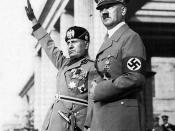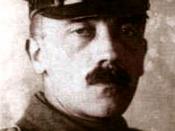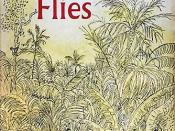Lord Of The Flies: The Philosophical Sense
The novel Lord Of The Flies, written by author, William Golding is among one of the world's most celebrated and most recognized novels. This symbolic novel has a number of different interpretations. One of these is that it is an anti-utopian novel. Some of the key aspects of the novel which gave rise to the interpretations are the symbolic nature of the characters and the settings.
Utopia - a novel written in 1516 by Sir Thomas More. It gave the fictitious account of a journey to a fabulous island, Utopia, the ideal commonwealth where everything was close to perfection. There was no crime, no violence, no prejudice or disputes. It was the ideal world. When the story first begins, a group of children are stranded on a deserted, tropical island. The island symbolized freedom as there were no adults there. It seemed like the ideal world to them.
William Golding wanted to show that paradise is far from reality.
The beginning setting of the resembled The Coral Island, a perfect setting - food, sun, friendship, simple democratic organization adventures and happiness. A simple society was set up in order to introduce rules on the island to try and resemble their original society. This was accomplished by the symbolic nature of the conch shell. The conch shell represents power and authority and the only rules the children have. The conch shows how people use objects to give power. At first, the conch was a success. Everyone followed the rules and was happy. It was the perfect Utopia. Later in the story, we also learn that objects don't always give power when people don't choose to obey it. This was the case when Jack started to rebel and disobey Ralph's rules and commands. This was...



Quotes!!
This is very good, but it would be even better if there were some specific quotes to back the information up... just a suggestion.
0 out of 1 people found this comment useful.